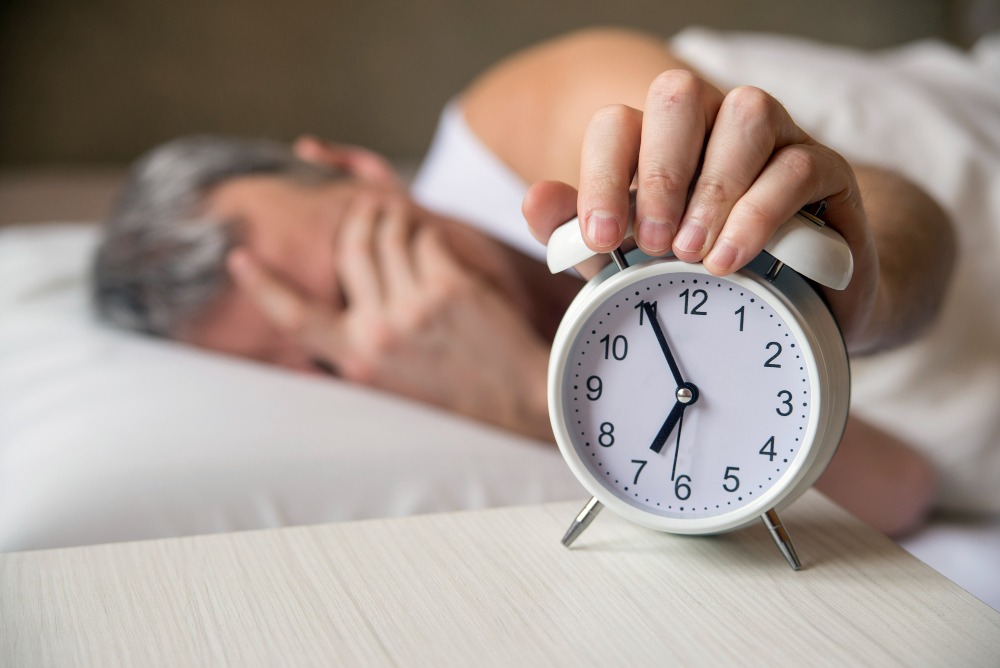What are the symptoms of insomnia?
Symptoms of insomnia can vary depending on the type and severity of the condition, but common symptoms and consequences of insomnia include:
- Difficulty Falling Asleep (Sleep Onset Insomnia): Individuals with this type of insomnia may have trouble initiating sleep when they first go to bed, often lying awake for an extended period before finally falling asleep.
- Difficulty Staying Asleep (Maintenance Insomnia): People experiencing maintenance insomnia may have no trouble falling asleep initially but struggle to stay asleep throughout the night, waking up frequently or waking up too early and being unable to go back to sleep.
- Daytime Sleepiness: Persistent fatigue and daytime sleepiness are common symptoms of insomnia. This can lead to difficulties concentrating, irritability, and impaired cognitive function during the day.
Inquire About This Service
- Difficulty Concentrating and Remembering: Insomnia can impair cognitive function, making it difficult to concentrate, remember things, and perform tasks effectively.
- Mood Disturbances: Insomnia can contribute to mood disturbances such as irritability, mood swings, anxiety, and depression.
- Increased Errors or Accidents: Due to impaired cognitive function and daytime sleepiness, individuals with insomnia may be more prone to making mistakes or being involved in accidents, particularly when driving or operating machinery.
- Tension Headaches: Chronic insomnia can lead to increased muscle tension and may contribute to the development of tension headaches.
- Gastrointestinal Symptoms: Some individuals with insomnia may experience gastrointestinal symptoms such as nausea, indigestion, or abdominal discomfort.
- Worsening of Other Medical Conditions: Chronic insomnia can exacerbate existing medical conditions such as cardiovascular disease, diabetes, and chronic pain conditions.
How is insomnia treated:
Insomnia is generally treated by medication and non-medication modalities.
- Addressing lifestyle factors that may contribute to insomnia, such as irregular sleep schedules, excessive caffeine or alcohol consumption, and lack of physical activity, can help improve sleep quality.
- Establishing a consistent sleep schedule, with regular bedtime and wake-up times, even on weekends, can help regulate the body’s internal clock and promote better sleep.
- Avoiding stimulating activities, heavy meals, and caffeine or alcohol consumption close to bedtime can help prepare the body for sleep.
Several medications are commonly used to treat insomnia. These medications can help improve sleep onset, maintenance, or both. However, it’s essential to use them under the guidance of a healthcare professional, as they can have side effects and potential interactions with other medications. Here are some medications used to treat insomnia:
- Hypnotic Medications: These medications are specifically designed to help induce and maintain sleep. They are typically prescribed for short-term use.
- A) Benzodiazepines: Examples include temazepam (Restoril), lorazepam (Ativan), and triazolam (Halcion). These drugs work by enhancing the activity of the neurotransmitter gamma-aminobutyric acid (GABA) in the brain, leading to sedation and relaxation.
- B. Non-Benzodiazepine Hypnotics:
- I) Z-drugs: These medications have similar effects to benzodiazepines but are structurally different. Examples include zolpidem (Ambien), eszopiclone (Lunesta), and zaleplon (Sonata). They also act on GABA receptors and are typically preferred for short-term treatment of insomnia due to their reduced potential for dependence and tolerance.
- II) Orexin Receptor Antagonists: newer class of hypnotics such as Lemborexant (Dayvigo), and Daridorexant (Quviviq).
- Melatonin Receptor Agonists: These medications work by targeting melatonin receptors in the brain, helping to regulate the sleep-wake cycle. They are often used for individuals who have difficulty falling asleep. Examples include ramelteon (Rozerem) and tasimelteon (Hetlioz).
- Antidepressants: Certain antidepressant medications can also be used to treat insomnia, particularly when there is an underlying mood disorder contributing to sleep disturbances. Examples include trazodone, amitriptyline, and doxepin. These medications may be prescribed at lower doses than those used to treat depression.
- Antihistamines: Some over-the-counter antihistamines, such as diphenhydramine (Benadryl) or doxylamine (found in some sleep aids), can cause drowsiness and are sometimes used to help with sleep. However, they are generally not recommended for long-term use due to the risk of tolerance and side effects such as daytime drowsiness and cognitive impairment.
- Off-label Medications: Certain medications not specifically approved for the treatment of insomnia may be prescribed off-label in some cases. These may include antipsychotics, anticonvulsants, and muscle relaxants. However, the use of off-label medications for insomnia should be carefully considered and monitored by a healthcare professional.
- It’s important to note that medication should be used as part of a comprehensive treatment plan for insomnia, which may also include behavioral therapies, sleep hygiene practices, and addressing underlying medical or psychological conditions contributing to sleep disturbances. Additionally, the long-term use of medications for insomnia should be approached cautiously, and regular evaluation by a healthcare provider is recommended.
In a minority of cases, a referral maybe necessary to a sleep specialist to perform a sleep study.
Some individuals may find relief from insomnia symptoms through alternative therapies such as acupuncture, herbal supplements (e.g., valerian root, chamomile), or relaxation techniques like yoga or tai chi. However, evidence supporting the effectiveness of these approaches is mixed, and they should be used with caution.


